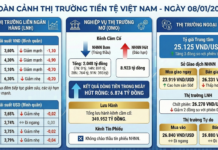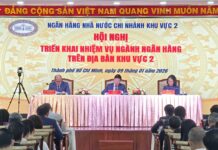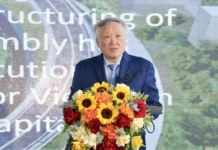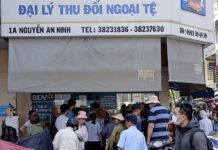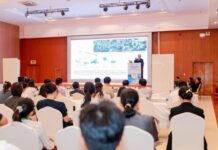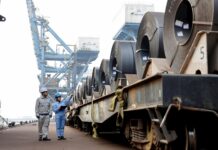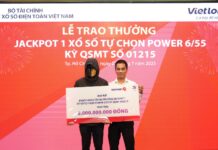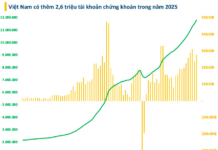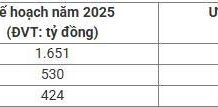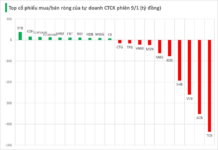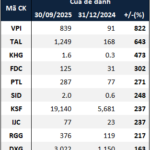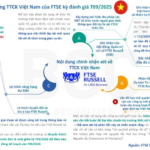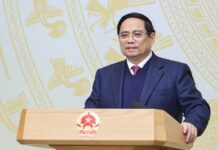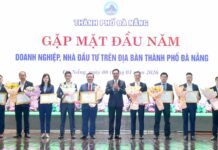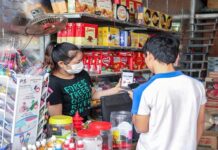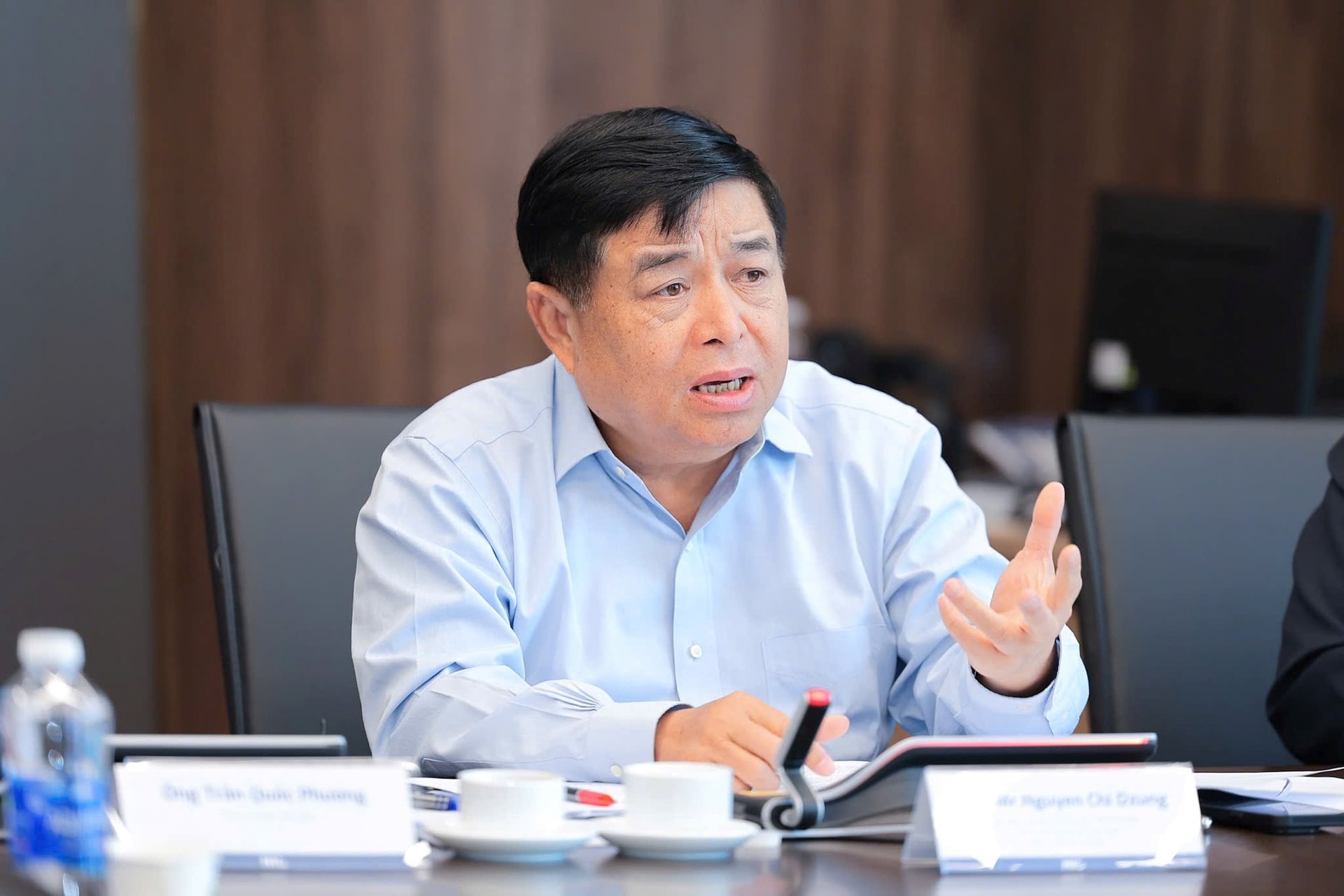
Deputy Prime Minister Nguyen Chi Dung. Photo: VGP
The event was attended by Deputy Minister of Finance Tran Quoc Phuong, leaders from the National Innovation Center, representatives from the Ministry of Science and Technology, research institutes, universities, and nearly 70 experts from 22 countries, both in-person and online.
Guiding the discussion, the Deputy Prime Minister posed a critical question: What should Vietnam do to rapidly develop strategic technology sectors in 2026-2027? He also emphasized the mechanism to attract “Chief Architects” and “Lead Architects” for national technology projects, considering these roles pivotal in leading foundational programs.
Proposals from Experts and Businesses
In the semiconductor field, Mr. Vo Duc Thang, Co-Director of the Intense Program in Vietnam and representative of the Innovation Network in Taiwan, noted that over 40,000 Vietnamese students are studying in Taiwan, with half pursuing high-tech engineering fields. Training models linked to businesses, along with networking activities and cooperation offices in various localities, are establishing a crucial foundation for Vietnam to build a high-quality semiconductor engineering workforce.
In artificial intelligence (AI) and digital twins, Mr. Lo Van Ba, Country Director of Dassault Systèmes Vietnam, highlighted that Vietnam is well-positioned to leap into the new-generation digital industrial model, supported by digital infrastructure, a young workforce, and the need to modernize strategic sectors.
Dassault Systèmes proposed collaborating with the National Innovation Center (NIC) to establish a Digital Twin and AI R&D Center in Vietnam. This initiative aims to develop pilot models in aerospace, semiconductors, smart transportation, robotics, and smart cities. It also seeks to mobilize international resources to create a “Made in Vietnam” Digital Twin – AI engineering team and enhance national innovation capabilities.
In aerospace technology, unmanned aerial vehicles (UAVs), and low-altitude economy development, Dr. Nguyen Xuan Mung, Professor at Sejong University (South Korea) and member of the Innovation Network in South Korea, shared insights into South Korea’s low-altitude economy growth. He suggested that Vietnam could capitalize on the restriction of UAV exports from China by actively entering the small UAV market. Additionally, Vietnam should invest in a national UAV ecosystem, low-altitude airspace management infrastructure, and a suitable policy framework for testing.
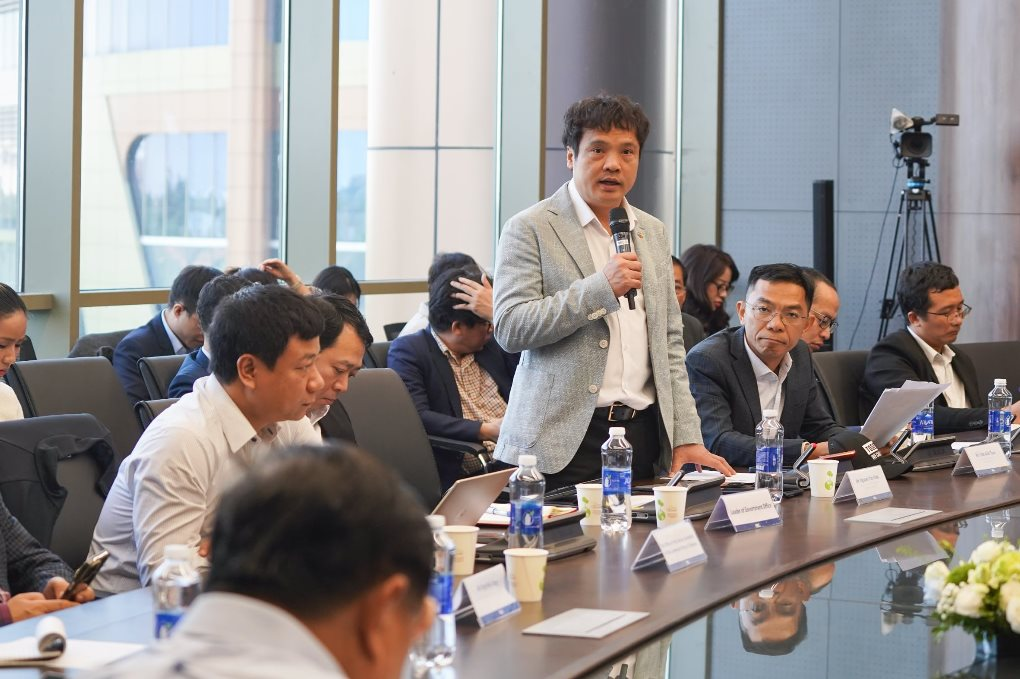
Mr. Nguyen Van Khoa – Chairman of AUVS Vietnam Network, CEO of FPT Corporation, speaking at the event
Mr. Nguyen Van Khoa, Chairman of AUVS Vietnam Network and CEO of FPT Corporation, proposed seven key initiatives. First, integrate UAV data into the National Database, in line with Resolutions 57 and 06.
Second, establish a National UAV Sandbox, initially piloting in Hanoi, Quang Ninh, Binh Dinh, and Ho Chi Minh City.
Third, plan UAV flight zones nationwide. Fourth, build a National UAV Testing and Certification Center, involving the Ministry of Science and Technology, Ministry of Defense, Military Technical Academy, and businesses.
Fifth, implement a public procurement mechanism for UAVs during 2025–2027. Sixth, develop a Vietnamese UAV business ecosystem through national UAV programs, focusing on R&D for batteries, sensors, AI, and control systems. Support startups via innovation funds and science and technology development funds, and establish a domestic supply chain for components like batteries, motors, cameras, and chips. Seventh, develop human resources and promote technology diplomacy.
The Fastest Path for Vietnam to Become a Developed Nation
Concluding the session, the Deputy Prime Minister applauded and highly valued the innovative networks, experts, and businesses for their actionable and proactive initiatives, demonstrating a commitment to partnering with the Government and the nation to implement strategic directives.
He emphasized that the key focus moving forward is the effective and substantive implementation of issued policies to develop a synchronized and sustainable innovation ecosystem for strategic technology sectors. This is not solely the Government’s or state management agencies’ responsibility but also that of the entire political system, innovation networks, experts, scientists, and businesses.
Given the current context and requirements for developing strategic technology sectors, delegates agreed that fields such as artificial intelligence, semiconductors, cybersecurity, quantum technology, robotics, automation, aerospace, UAVs, advanced materials, and biomedical technology are critical for national competitiveness in the digital era, green economy, and circular economy. These are not just development opportunities but essential for Vietnam to surge ahead and deeply engage in the global technology value chain.
To advance these sectors, the Deputy Prime Minister stressed the need for a comprehensive strategy to master core technologies, develop high-quality human resources, build technology infrastructure and shared laboratories, foster innovation, and create a holistic ecosystem for technology sectors. The Government’s leadership role is crucial for success and collaboration among the Government, businesses, and academia.
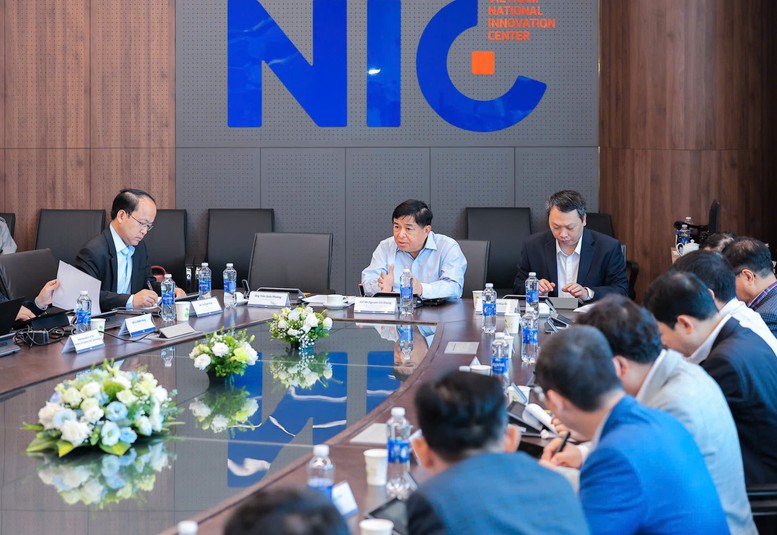
Event proceedings
Highlighting significant challenges, the Deputy Prime Minister noted the incomplete role of strategic technology sectors at certain levels, a shortage of high-quality human resources, substantial capital needs for R&D, digital infrastructure, laboratories, and pilot production. There is also a lack of physical spaces and policies for testing new technologies, as well as gaps in standards, intellectual property, cybersecurity, and global supply chain requirements.
To effectively implement the Government’s and Prime Minister’s directives on promoting strategic technology sectors, the Deputy Prime Minister requested stakeholders to focus on several issues.
First, the Ministry of Finance should consolidate and propose breakthrough mechanisms to facilitate resource mobilization and allocation for strategic technology sector development.
Second, the Ministry of Science and Technology should fully absorb valuable expert and scientist input, consider adding technology sectors to the strategic product group, prioritize national-level science and technology tasks for research groups, develop technical standards for new technologies, support intellectual property mechanisms, promote the commercialization of strategic technology products, and pilot technology startup programs in strategic sectors.
For the Innovation Network and experts, the Deputy Prime Minister urged alignment with Party and State policies, particularly Resolution 57 and the 11 strategic technology sectors, to address the nation’s major challenges.
Additionally, they should proactively propose international cooperation programs, connect Vietnamese experts domestically and abroad to short-term and strategic projects, actively engage in policy reviews, strategy development, knowledge transfer, expert training, and technology consulting. They should also mobilize international resources to establish R&D centers, support training, and deploy products.
Developing strategic technology sectors is imperative and a long-term priority to enhance competitiveness, enabling Vietnam to achieve rapid, sustainable, and breakthrough development. This is the shortest path for Vietnam to catch up, advance, and emerge as a developed, prosperous, and self-reliant nation.
ADB Country Director Highlights Vietnam’s Remarkable Progress Over the Past Decade
On the morning of November 25th, in Hanoi, the Ministry of Finance and the Asian Development Bank (ADB) jointly hosted the 2025 High-Level Public-Private Partnership (PPP) Dialogue. This pivotal event brought together regulatory bodies, development partners, and domestic and international investors. It took place as Vietnam finalizes significant amendments to its PPP Law, marking a critical phase in the nation’s development trajectory.
Prime Minister Attends Key Events at the Autumn Economic Forum
On the morning of November 26th, the 2025 Autumn Economic Forum officially commenced in Ho Chi Minh City. The event was graced by the presence of Prime Minister Pham Minh Chinh, Deputy Prime Minister Bui Thanh Son, leaders from various ministries, local authorities, representatives from approximately 30 diplomatic missions in Vietnam, national leaders, experts, scientists, and over 500 domestic enterprises specializing in science, high technology, and innovation.
“Real Estate Firms’ Reserves Surge 59% in Nine Months”
As of the end of September 2025, the total reserves of 104 real estate companies listed on the HOSE, HNX, and UPCoM exchanges surged by 59% compared to the beginning of the year, reaching nearly VND 213.4 trillion. Short-term cash holdings also rose by 26%, climbing to approximately VND 119.7 trillion.
Elevating Health Awareness: Long Châu and STADA Pymepharco Unite to Combat Health Risks
Obesity has become a pressing global health concern, and Vietnam is no exception. In a collective effort to promote a healthier Vietnam, Long Châu has partnered with STADA Pymepharco to launch a series of impactful community initiatives. These activities aim to raise awareness about safe, scientifically-backed, and reliable weight loss methods, empowering individuals to take control of their well-being.






